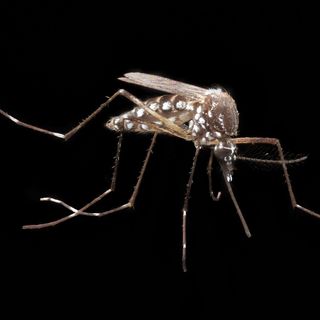A team of scientists in the U.S. has identified a new and extremely potent strain of the novel coronavirus, and suggests that this strain spreads much faster than the one that had begun infecting people in Wuhan at the end of 2019.
Published in bioRxiv, the study by Los Alamos National Laboratory analyzed 6,000 coronavirus sequences from around the world collected by the Global Initiative for Sharing All Influenza Data, a public-private organization in Germany. The research sought to present an early-warning system for identifying important mutations. It concluded that a new strain started spreading in Europe in early February, before moving on to the U.S., and has quickly become the most dominant strain of the coronavirus, taking over the original strain that emerged from Wuhan in China.
While the scientists discovered as many as 14 mutations of the coronavirus, they chose to focus on this strain, which spreads faster due to a mutation in its spikes. This enhances its contagiousness by helping it latch on to human cells more effectively and replicate better. Moreover, the authors believe this strain may make individuals susceptible to a second bout of Covid19 after recovering the first time.
Related on The Swaddle:
WHO Director Says Worst of Covid19 Yet To Come
“This is hard news. The story is worrying, as we see a mutated form of the virus very rapidly emerging, and over the month of March becoming the dominant pandemic form. When viruses with this mutation enter a population, they rapidly begin to take over the local epidemic, thus they are more transmissible,” Bette Korber, a computational biologist at who led the study, said. If confirmed, this news would also mean that the vaccine development process could be complicated, as an effective vaccine would need to protect against various strains.
However, the study has not yet undergone the required peer-review process. As a result, some scientists are skeptical about the conclusions it has drawn. “There is a lot of speculation here. They have no experimental verification,” Dr. Peter Hotez, co-director of Texas Children’s Hospital Center for Vaccine Development told The Los Angeles Times. Echoing Hotez’s views, Charles Brenner, a professor of biochemistry at the University of Iowa, warned people to assess studies like this very carefully.
While the authors of the study found this strain to be more infections, they did not find any evidence to suggest that it increases the probability of hospitalization or the likelihood of death. “Viruses mutate to become more transmissible, but not generally to become more virulent,” Stanley Perlman, a virologist at the University of Iowa, told The Washington Post, but added that he believes the study is credible.




